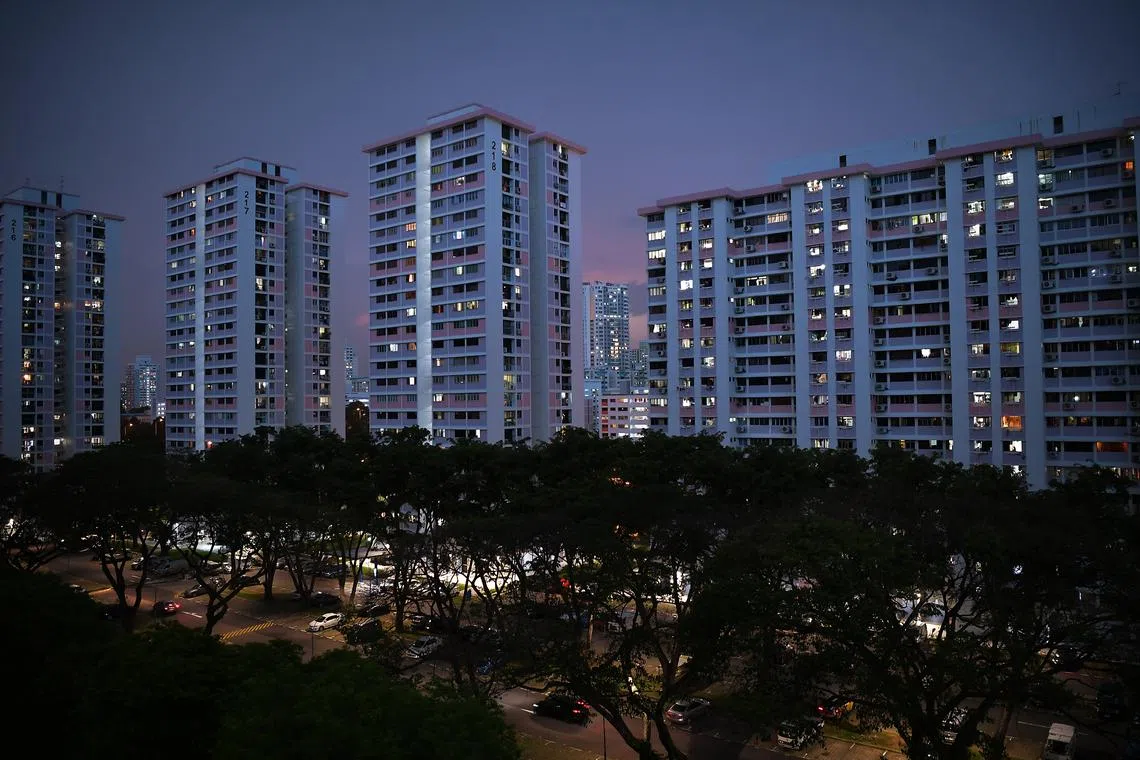Measures to protect Singapore’s energy market from 2023 will incur higher costs: Tan See Leng
Sign up now: Get ST's newsletters delivered to your inbox

The measures include requiring generation companies to maintain sufficient fuel for power generation.
PHOTO: ST FILE
Follow topic:
SINGAPORE - Safeguards introduced from 2023 to help Singapore withstand significant volatilities in the global energy market will incur “higher costs”, said Second Minister for Trade and Industry Tan See Leng in Parliament on Tuesday.
He was responding to questions from Workers’ Party MP Louis Chua (Sengkang GRC) on whether measures to ensure the security and adequacy of gas supply here will result in higher electricity prices in Singapore, and on the expected cost burden on the Government, power generation companies and consumers.
In his reply, Dr Tan said the Ministry of Trade and Industry (MTI) and the Energy Market Authority (EMA) will implement the measures in a calibrated way, to balance the cost burden while ensuring that electricity remains affordable.
The measures include requiring generation companies to maintain sufficient fuel for power generation, and looking into tighter eligibility criteria for those buying from the wholesale electricity market – where prices change every half an hour according to supply and demand – so that only larger consumers who are better equipped to deal with the risks of price volatilities would be allowed to enter into such plans.
Dr Tan, who is also Manpower Minister, added: “But the value of a more stable, secure and resilient energy system cannot be overstated. It is fundamental, it is foundational to our ability to grow our economy, to create good jobs for our people, and to maintaining our quality of life.”
Mr Chua had also asked about the impact that a lower gas supply from Indonesia will have on Singapore’s gas supply and electricity prices from 2023 when a five-year extension of a contract between the two countries
Singapore relies heavily on gas for industry and power generation, with 95 per cent of the Republic’s electricity generated using natural gas.
Dr Tan said the drop in gas supply from Indonesia will be offset by liquefied natural gas imports, adding that the shortened contract of five years was also brought about by price volatility around the world.
Even as dependency on natural gas falls, the transition towards renewable energy may not necessarily result in cheaper electricity because there is a cost in terms of adopting green sources of renewable energy, he noted.
Dr Tan also addressed questions raised by Mr Zhulkarnain Abdul Rahim (Chua Chu Kang GRC) and Ms He Ting Ru (Sengkang GRC) on how the Government will protect consumers as it revises the energy market’s rules.
Ms He had asked for consumers to receive better education that communicates the risk of different contractual options available to them. These contracts, for example, could be provided in all four languages, she said.
Plans to enhance licensing requirements for electricity retailers were first mentioned more than a year ago following the global energy crisis, which sparked
Stricter rules for electricity retailers and enhanced protections for consumers if retailers prematurely terminate contracts were among new safeguards announced by MTI on Oct 25 at the start of the Singapore International Energy Week.
The EMA is in discussion with market participants on operational measures to strengthen the wholesale electricity market, said Dr Tan. It will also be launching a consultation in the coming weeks on specific proposals to enhance regulatory requirements for retailers, he added.


